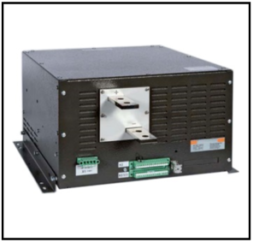- Voltage Regulation and Conversion Efficiency
One of the primary functions of DC to DC converters is to regulate and convert voltage levels to match the specific needs of electronic devices. Custom solutions allow for precise voltage regulation, ensuring that sensitive components receive a stable and optimal power supply. High conversion efficiency is a hallmark of custom converters, minimizing energy loss and contributing to overall system performance.
- Size and Form Factor Flexibility
Custom DC to DC converters offer unparalleled flexibility in terms of size and form factor. This is particularly crucial in applications where space is limited or unconventional layouts are required. Miniaturization is a common trend, and custom converters can be designed to fit seamlessly into compact spaces without compromising performance.
- Temperature and Environmental Considerations
In harsh operating environments, such as those encountered in aerospace or automotive applications, temperature and environmental factors can significantly impact electronic components. Custom DC to DC converters can be engineered to withstand extreme temperatures, humidity, and other challenging conditions. Robust designs ensure reliability and longevity, even in the most demanding settings.
- Input Voltage Range and Output Power Levels
Unlike off-the-shelf converters, custom solutions can be tailored to accommodate a wide range of input voltages and output power levels. This adaptability is essential for applications with varying power sources or devices with specific power requirements. Custom converters provide the versatility needed to address diverse and evolving industry needs.
- Integration with Control Systems and Communication Protocols
Modern electronic systems often require seamless integration with control systems and communication protocols. Custom DC to DC converters can be designed with compatibility in mind, enabling efficient communication with other components and systems. This integration enhances overall system intelligence and facilitates advanced monitoring and control capabilities.
- Reliability and Redundancy
Reliability is paramount in mission-critical applications. Custom converters can be engineered with built-in redundancy features to ensure uninterrupted power delivery. This is particularly crucial in applications where system failures can have severe consequences, such as in medical devices or space exploration equipment.
- Advanced Monitoring and Diagnostic Capabilities
In the era of Industry 4.0, data-driven insights are invaluable. Custom DC to DC converters can be equipped with advanced monitoring and diagnostic capabilities, providing real-time feedback on performance metrics. This facilitates predictive maintenance, reduces downtime, and enhances overall system reliability.
Conclusion
Custom DC to DC converters represent a cornerstone in the evolution of power electronics, offering tailored solutions to address the unique challenges of diverse applications. As industries continue to push the boundaries of innovation, the demand for custom power solutions will undoubtedly grow. By harnessing the key characteristics discussed in this post, engineers and designers can unlock new possibilities and elevate the performance of electronic systems to unprecedented heights.

